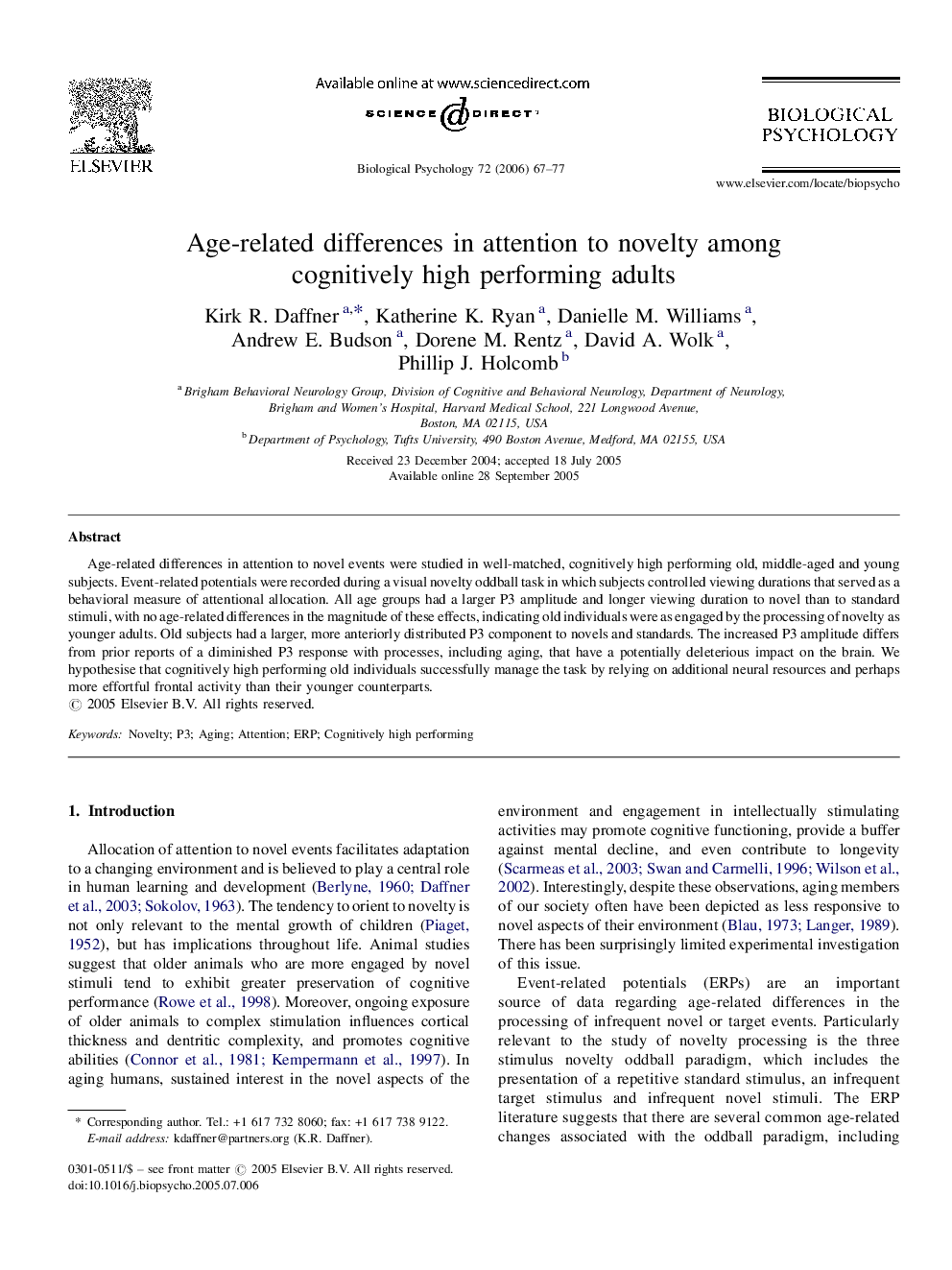| Article ID | Journal | Published Year | Pages | File Type |
|---|---|---|---|---|
| 921850 | Biological Psychology | 2006 | 11 Pages |
Age-related differences in attention to novel events were studied in well-matched, cognitively high performing old, middle-aged and young subjects. Event-related potentials were recorded during a visual novelty oddball task in which subjects controlled viewing durations that served as a behavioral measure of attentional allocation. All age groups had a larger P3 amplitude and longer viewing duration to novel than to standard stimuli, with no age-related differences in the magnitude of these effects, indicating old individuals were as engaged by the processing of novelty as younger adults. Old subjects had a larger, more anteriorly distributed P3 component to novels and standards. The increased P3 amplitude differs from prior reports of a diminished P3 response with processes, including aging, that have a potentially deleterious impact on the brain. We hypothesise that cognitively high performing old individuals successfully manage the task by relying on additional neural resources and perhaps more effortful frontal activity than their younger counterparts.
